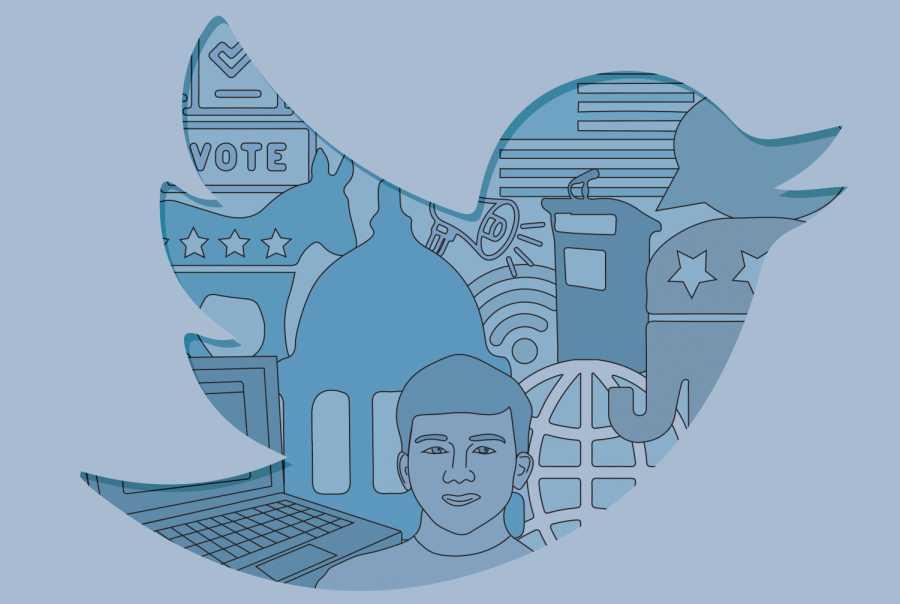Senior runs for Twitter senate
Elise Anderson gains campaigning skills from election simulation
Elise Anderson, pictured above, gets involved with politics.
October 8, 2020
Senior Elise Anderson is running for a Minnesota Senate seat in the Twitter election. She said she decided to run to get more involved in the political Twitter community, as well as for enjoyment.
“I just thought (running for office) would be a fun way to get more involved,” Anderson said. “It’s not that many actual responsibilities. It’s mostly just a thing that we’re doing for fun for a simulation. We’ll find out what we’re doing once we get set up and start the meetings.”
The Twitter election is a mock presidential election created this year to encourage real-life voting. It is meant to increase public knowledge of the voting process by giving Twitter users the opportunity to vote for other users in a similar fashion to the real 2020 presidential election. Voting for the Twitter election started Oct. 1.
Freshman Gunnar Anderson, Elise’s brother, said Elise Anderson has many qualities that make him a great candidate.
“She’s very politically active and is very passionate about the environment and cares about people. She’s trustworthy and not crooked. She understands how politics work very well…She usually tries to not offend anyone or hurt people’s feelings,” said Gunnar Anderson.
Elise Anderson said she is focusing his campaign on creating content and working towards receiving endorsements from other Twitter users to spread the word.
“I’ve just been working on making sure I have a platform to run on so people know what they’re supporting,” Elise Anderson said. “Then, just working on collecting endorsements from other people who are running for different offices. I have eight out of the nine endorsements that have been given.”
According to Elise Anderson, her odds of winning look promising despite considerable competition.
“There are six people running from Minnesota,” Elise Anderson said. “Three of the accounts are not very active at all and I haven’t really heard of them. Obviously, each state gets two senators, so I only need to get more votes than one of the two other (active competitors) to win.”
Gunnar Anderson said he dislikes Twitter in general, but supports the Twitter election.
“I don’t like Twitter. It feels extremely polarized and people will attack you for having a slightly different opinion. (However, the Twitter election) is pretty neat,” said Gunnar Anderson.
Elise Anderson said the Twitter election is similar to the real election in the United States, but there are some distinctions.
“It definitely does (simulate the democratic process),” said Elise Anderson. “Obviously, it’s a bit different from real life because the typical people who tend to be active on politics on Twitter are not necessarily representative of the American public, but the underlying processes of attracting voters to your side and running these kinds of elections are the same.”
According to Elise Anderson, the Twitter election is a useful tool for learning about politics. He said he has also gained insights on what it’s like to be a candidate.
“I’ve learned quite a bit, not necessarily about elections, but what it’s like to run as a candidate and the electoral strategy,” Elise Anderson said. “It’s just been a real learning experience figuring out what I need to do to get my name out and my campaign out and to get votes.”





